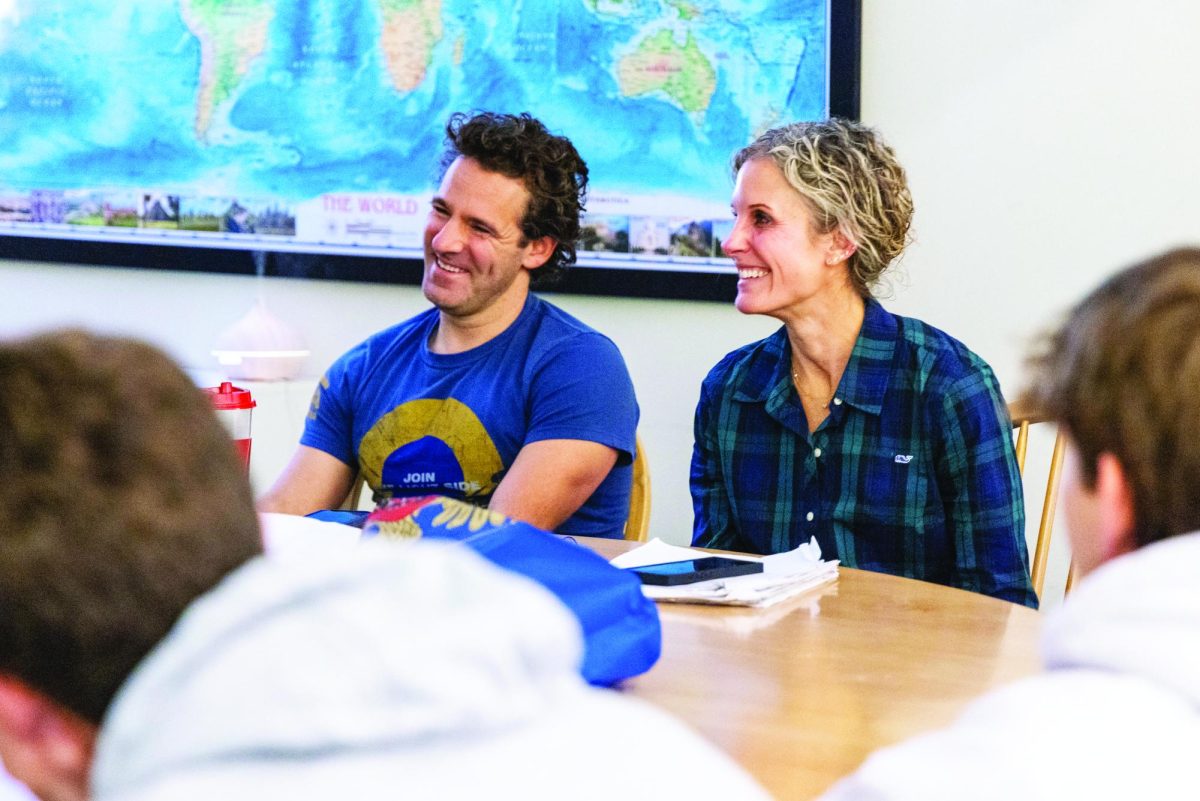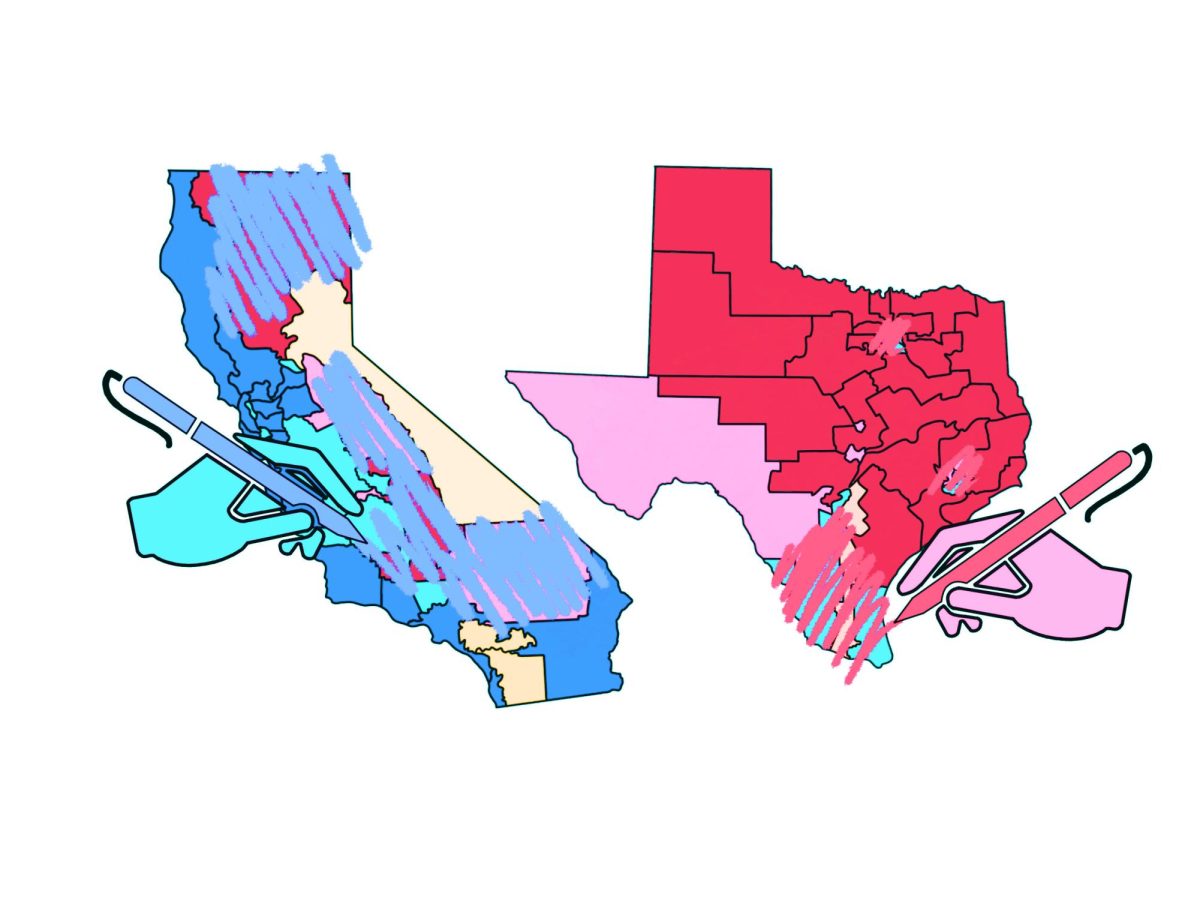Bullets whiz past, striking the rocky hill behind him. He ducks low, gripping his rifle, his heart pounding in his deafened ears.
ATVs roar up behind him. Backup. His friends.
Muffled shouting, explosives detonating, clouds of sand launching skyward, chokes the air and blinds his vision.
Gunfire rattles again. Shattered glass flies everywhere. The sand is stained red. His comrades are motionless.
Then, a tap. A pressure in the center of his back. He looks down, red spilling into his uniform from the inside. His knee gives away as he falls.
“Dude, we got second place. No way these guys killed us, they had to be cheaters.
We can’t end on that, let’s queue one more.”
While millions of students enjoy playing war simulators from the comfort of their homes, thousands of real soldiers risk their lives every day on combat missions worldwide. According to the Department of Defense (DoD), approximately 170,000 active-duty personnel are deployed overseas at any given moment. Each year, an average of 1,200 service members do not return home, which equates to roughly four people killed in battle every day.
War is not pixels. War is real. And for those who fight it, the battle doesn’t pause when the game is turned off.
This unseen disconnect between students and soldiers is something History Instructor Michele Santosuosso sought to resolve through the creation of her History of Special Operations (Spec Ops) class in 2017. Santosuosso says she structured her class to reflect a college course, 100 percent Socratic style, where students engage in serious debates with each other and the get the occasional visit from former special operations personnel.
“I created (the Spec-Ops) course eight years ago, and it’s special to me that so many students want to take it—especially since it’s not AP,” Santosuosso said, “It’s the sweet spot of my day because it’s a passion of mine, and students choose to be here.”
For Santosuosso, the main purpose of Spec Ops isn’t necessarily to detail the cruel aspects of the war on terror, but instead to listen to the stories the visitors share, to take key lessons away, and ultimately to be aware of the things that are happening around us. “A guest once told a story about how he spent weeks preparing for a mission to capture a high-value target,” Santosuosso said. “At the last minute, the weather forced his team to stand down. Another unit went instead, and their helicopter crashed, killing everyone. At first, he was furious, but he later realized that being angry over things beyond his control was pointless.”
Situations like this can cause soldiers incredible mental stress which is only made worse by the fact that when many return home life after the military just isn’t the same as it used to be.
Without real combat experience, nobody really knows what it’s like to be in the line of fire, staring death straight in the eye.
“Soldiers have seen, been in, and dealt with hardship that people back home just can’t fathom. So there’s an inability to empathize and incorporate them back.” English Teacher and Director of the Wilderness Program Cameron Hillier said. “As a country, we shouldn’t set veterans aside as different, because that makes them ‘the other.’ It pushes them away, Even when they come home, we say you’re not a civilian, you’re still different.”
After spending years in battle zones, veterans commonly suffer from long-term fatigue as they’ve established the idea of “danger” to any combination of their sensors. Santosuosso says for her guests, a trigger can be anything. A smell, a sound, an image. And it never really goes away. But acknowledging it is the first step to managing it.
“Many in the Spec Ops community refer to it as PTSS instead of PTSD, Post-Traumatic Stress Syndrome rather than a disorder,” Santosuosso said. “Because, in their eyes, it’s not a disease but a lifelong challenge to manage.”
For Hillier, a lot of the implicit consequences of real-life war are reflected in the analysis of the novel Matterhorn by Karl Marlantes.
“Technically (Matterhorn is) considered fiction,” Hillier said. “But if you listen to Marlantes getting interviewed, there’s clearly very little he’s fabricated, almost like a semi-autobiography, and it seems like it was therapeutic for him to get this story out onto the page and process it.”
Sometimes, life can be overwhelming for everyone, making it easy to overlook the constant sacrifices for us all over the world.
“It’s easy for students to tune out because of video games, TikTok and school stress, but being aware of what’s happening globally is important,” Santosuosso said. “There are American troops deployed somewhere every day of the year.”
Even though we can’t change how battles are fought or understand the difficulties veterans on campus face, Santosuosso says she believes it’s importantwhen talking with people post-deployment to truly learn their lessons.
“One of my guests, a former fighter pilot, always tells students: ‘Do something bigger than yourself,’” Santosuosso said. “One of the simplest, yet most powerful messages shared was: ‘Be kind to everyone.’ It sounds basic, but in their world, that kindness sometimes saved lives.”
Military guest speakers enhance classroom
February 7, 2025
Categories:
Former Navy Seal Josh Cohen shares his experiences to the students in the Spec-Ops class
More to Discover
About the Contributors
Andrew Ye, Focus Editor
Diego Armendariz, Sports Editor








